Audio Autopsy, 1968: The Flirtations, "Nothing But a Heartache"💔Songwriters Wayne Bickerton & Tony Waddington
They wrote one song that floundered, so they re-purposed one of its hooks, and re-cast their musical net into the high Cs (and B-sharps) & came up with a supreme rouser that looked to one-up Motown!
Just listened to “Nothing But a Heartache.” Very cool track, which I didn’t know before. I love the contrast between the upbeat rhythm and the sad lyrics. Pain may not feel good, but it sometimes “feels right.” Very nicely done!
I particularly like the soul/R&B vibes, with the added twist of the syncopated melody at the end of each chorus, almost a prog-rocky kind of style. I like the slight tension it creates, perhaps reflecting the ups and downs and emotional rollercoaster of being in love with a bad guy!
of The Vinyl Room
The Emergence of Bickerton & Waddington
“Nothing But a Heartache” by The Flirtations must’ve played on Houston’s leading Top 40 station in early 1969 (KILT-AM, “The Big 610”). I’m sure I liked it, but it probably just blurred into the several dozen other bouncy, melodic hits of the day in Mom’s car.
(Fun diversion: Join a 13-year-old me in Mom’s car, early-February 1969: Our Flirtations song is not included—although, it’s the time of 1969 when it could have been—but, here’s a breezy 5-minute aircheck from KILT on an early February ‘69 afternoon…brief song snippets, DJ chatter and ads, promos, and PSAs of the day!):
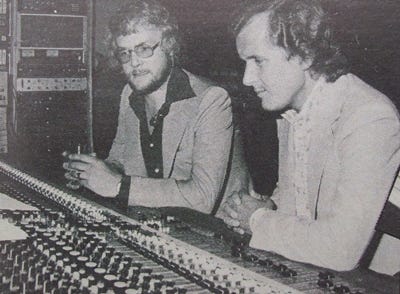
About 5 years later, I ran across the names Wayne Bickerton and Tony Waddington, for the first time, in the mid-’70s, in UK music tabloid, Melody Maker. I was in my first year of college (N. Texas State U.) in 1974, and it was in that year that the duo wrote, and Bickerton produced, The Rubettes’ #1 UK hit, “Sugar Baby Love.”
The Rubettes never got a U.S. recording deal, so they remain largely unknown in the States. I never needed to hear them, as the British tabs accurately described them as a gimmicky bubblegum/doo-wop/glam amalgam, and that was all I needed to know! Plus, they looked pretty dang silly.
As for the pointless exercise of yanking doo-wop needlessly into the ‘70s, America’s novelty, Sha Na Na, had that well-covered, as did UK acts like Showaddywaddy (who were originally offered, and rejected “Sugar Baby Love”…which explains why the “bop showaddywaddy” phrase is included in the song), and Roy Wood & Wizzard, the latter two, about whom we’ve written plenty, in the positive:
Around that same mid-’70s time (and, back in Houston), I managed to find the U.S. version of The Flirtations’ album that had “Nothing But a Heartache” at a flea market. I looked on the back, and found those two, odd, three-syllable names again: Bickerton & Waddington! (Fun tidbit: Bill Price, who co-produced, with Chris Thomas, the lone Sex Pistols album in 1977, was an engineer on this one!)
Yeah3Magazine.com: “Well that’s the greatest record I ever heard…” This is one of those. “Nothing But A Heartache” is a massive UK-fueled Northern Soul classic, about as immediate as any song gets this side of “I Wanna Be With You” by The Raspberries.
Produced within an inch of its life, replete with enough horns and strings to propel it into the stratosphere, its true anchor, however, are the drums (xylophone doesn’t hurt, either), which give it the action that goes blow-for-blow against a scorching lead vocal. (If I had to guess, it’s Earnestine Pearce singing.)
Alas, that could be why the damn (TOP SHELF) tune only made it to #34 on Billboard: Staggered regional success was the culprit, however.
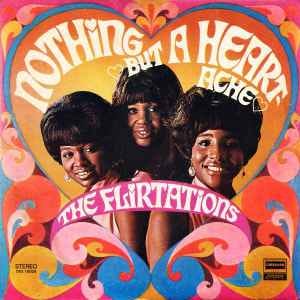
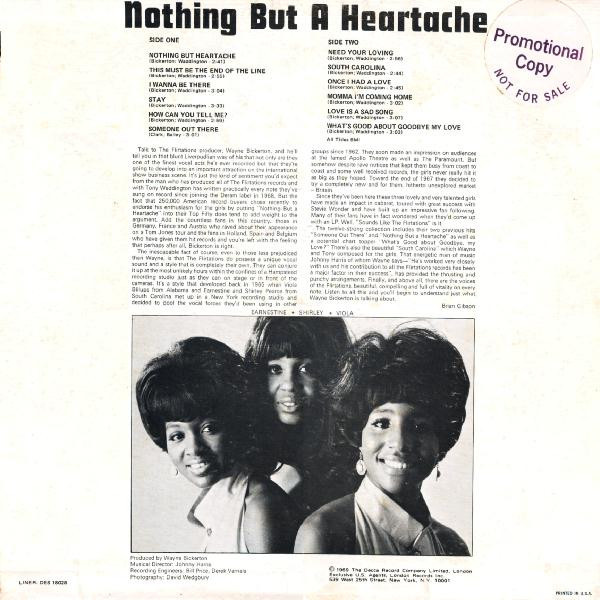
Your Agent Would Frown Upon This Roadmap to Fame
The Flirtations formed in New York City in 1962. Well, that’s not unusual. But, after a handful of tiny-label singles that went nowhere, and a couple of lineup shuffles, these South Carolina natives, Viola Billups aka (Pearly Gates), and sisters Earnestine and Shirley Pearce, entered (and won) a contest in 1967 to see who could sound most like The Supremes!
Well, of course, this sent them packing for England! Wayne Bickerton (soon to be A&R at Polydor/UK, where he signed Slade and the New Seekers) discovered them, got them signed to Deram Records/UK (where he was label manager at the time), and produced “Nothing But a Heartache,” which he wrote with Tony Waddington (who was also employed by Deram as a staff writer), a song which Wikipedia calls “a dense, dynamic, earth-shattering melodrama”!
I asked
of The Song’s the Thing (and former freelance London studio engineer in the ‘80s), for his overview on the song: “Classic British Northern Soul at its best. The real deal. Tight U.S. female lead vocals, harmonies, and backing-vocal arrangements. Song written and produced by two great UK pop songwriters, with bright driving, crisp, Phil Spector-like production. The emphasis is all about stylishly letting it all go on the dance floor, total uninhibited abandon, with well-rehearsed moves.” Read Nic’s exclusive 1980s in-studio anecdotes from London by clicking this button:It’s All About the B-Side
There are three things of note about the following single: Two are visual (the date, 1968, and the songwriters: Bickerton & Waddington, and one is auditory: The germ of a familiar melody snippet masterfully repurposed by that duo later that same year into what became a worldwide hit for The Flirtations. Not a smash, really, in any country, but certainly a monument of melding concise song structure with a perfectly complementing and riveting arrangement and production.
Just four months before Deram released The Flirtations’ eventual hit, the duo wrote a B-side, called “Romeo and Juliet” for Newcastle combo, Toby Twirl, Bickerton producing. The melody of the verses tells us all we need to know: In just two bars, the seeds of a hit were born. Horn charts also reveal the direction Bickerton would take his reworked arrangement for the girls:
“Heartache”: Teenage Angst Grows Up
This would be Bickerton & Waddington taking the slick, smooth’n’elegant Motown/Supremes production values (strings, horns, using the entire percussion section), and ratcheting them up, in 1968, to a far more urgent and insistent pleading and yearning: “It’s my party, and I’ll cry if I want to, but I’m gonna dance my arse off doin’ it!”
The official lyrics insist the last two lines (below) are “He’s got me all won, Can I get him?” I’ve always only heard, “He’s got me, oh why Can’t I get him?” which makes her quarry seem all the more frustratingly distant and unreachable. Why can he get what he wants, but it’s a struggle for me to call him my own?
That would explain the ocean of tears:
Nothing but a heartache every day
(Nothing but a heartache)
Nothing but a teardrop all of the way
(Nothing but a teardrop)
Loving a bad guy is such a sin, yeah
He’s got me, oh why
Can’t I get him?
And, besides, by 1968, we’re knocking on the door of the women’s liberation movement; “he’s got me all won?” No, I don’t think so. She’s not a kewpie doll you can win at the carnival. Didn’t songwriters John Madara and Dave White, say it all through Lesley Gore in 1963? “You Don’t Own Me,” hon.
The Supremes Pass the Torch
Per Songfacts, regarding “Nothing But a Heartache”: “[The Flirtations’] most famous song and only hit, it has a strong Motown influence. Not only does the group sound like The Supremes, but the song contains lyrics of heartache and pain set to a lush, uptempo groove — something typical of Motown songs like ‘You Keep Me Hangin’ On’” (1966). This performance from the October 29, 1966 Hollywood Palace TV show:
With “Nothing But a Heartache” enjoying a November 1968 release, I find it deliciously coincidental that Diana Ross and The Supremes’ “Some Things You Never Get Used To” was released by Motown in May 1968. Bickerton went into the studio with The Flirtations later that summer in order to affect a November ‘68 single release for “Nothing But a Heartache.”
Background vocals, here, by Ashford & Simpson, with instrumentation by the Motown house session players, The Funk Brothers, with the Detroit Symphony Orchestra (just below).
The Recipe Has Led Us Here
Take the Bickerton/Waddington “Romeo and Juliet” verse snippet, expand and arrange, then mix in a liberal dose of Motown production verve, rev up the horns, strings, and drums, and throw in a healthy dash of rock and glam sensibilities, with a daring nod to the trademark Phil Spector/“Be My Baby” drum break a minute into “Nothing But a Heartache,” and what could be called the final push into a classic….
….Call this song the natural and stylistic springboard into “Nothing But a Heartache”:
The Supremes’ “Some Things” stalled for 3 weeks at #30 on the Billboard pop chart in July ‘68, and was released between the #28 “Forever Came Today” (early ‘68) and the #1 “Love Child,” which came toward the end of ‘68, close to the release date of “Nothing But a Heartache.”
“Some Things You Never Get Used To,” incidentally, became the lowest-charting Supremes single since 1963, and became the catalyst for Motown founder, Berry Gordy, to revamp the songwriting strategy for The Supremes due to the loss of Motown’s premier production team of Holland–Dozier–Holland. Gordy, famously, had assigned H-D-H to be the group’s sole producers after the success of 1963’s “When the Lovelight Starts Shining Through His Eyes,” the first Supremes single written and produced by the prodigious trio.
The Flirtations’ Payoff

Canadian writer,
of Musings of a Broken Record: “I can’t remember exactly when I first heard ‘Nothing But A Heartache,’ but it’s one of those songs I never get sick of hearing. Everything from the intro to the melody to the vocals are all pure girl group/pop perfection! I feel like it’s one of those songs that, despite having been a hit, never really got its due.”
Mark featured Carole Pope’s 1988 cover of “Nothing But a Heartache” in his recent (and excellent) spotlight on Canadian band, Rough Trade:
Chart Action
“Nothing But a Heartache” reached the Top 40 in both the Netherlands (#33) and in the U.S., where it spent two weeks at #34 in late May 1969 during what was then considered a lengthy 14-week run on Billboard’s Hot 100 – especially for a hit that did not reach the top 30. In Canada, it made it to #31, and #97 in Australia.
Wayne Bickerton, born in Wales in 1941, passed away near London in November 2015 at age 74. Tony Waddington, now 81, was born in Liverpool in 1943. Bickerton and Waddington won Ivor Novello Awards as Songwriters of the Year in the ‘70s.




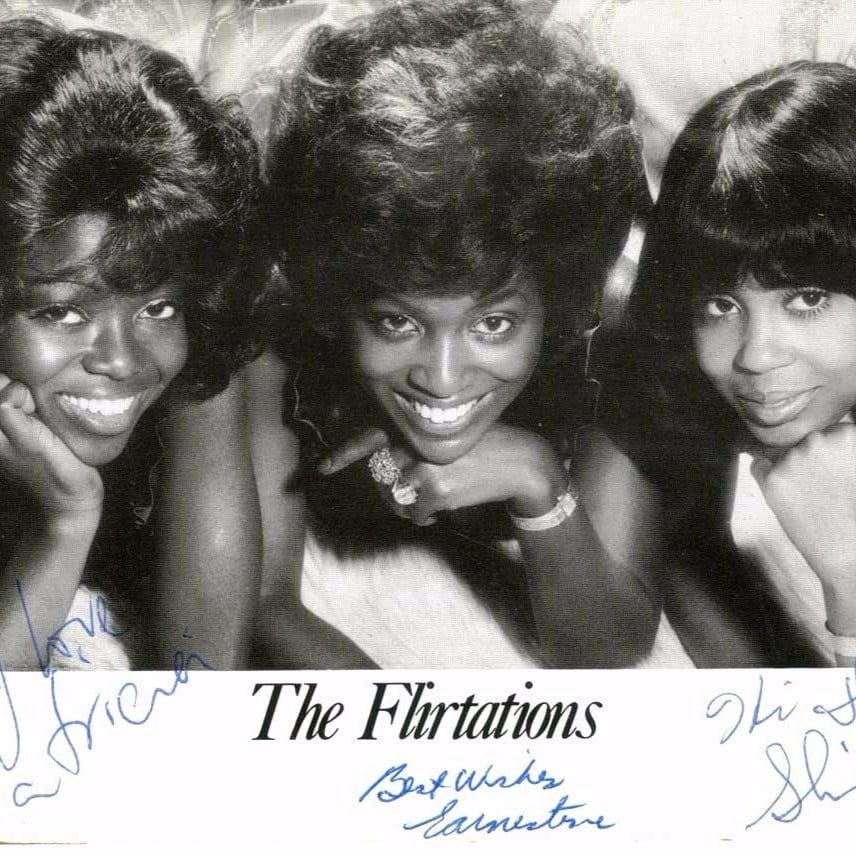
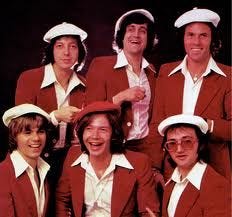
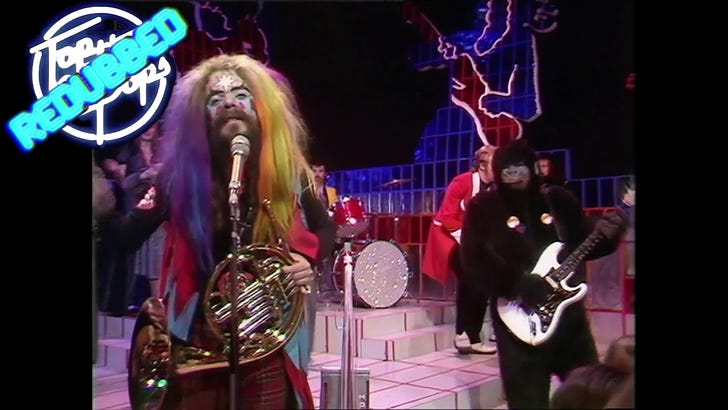
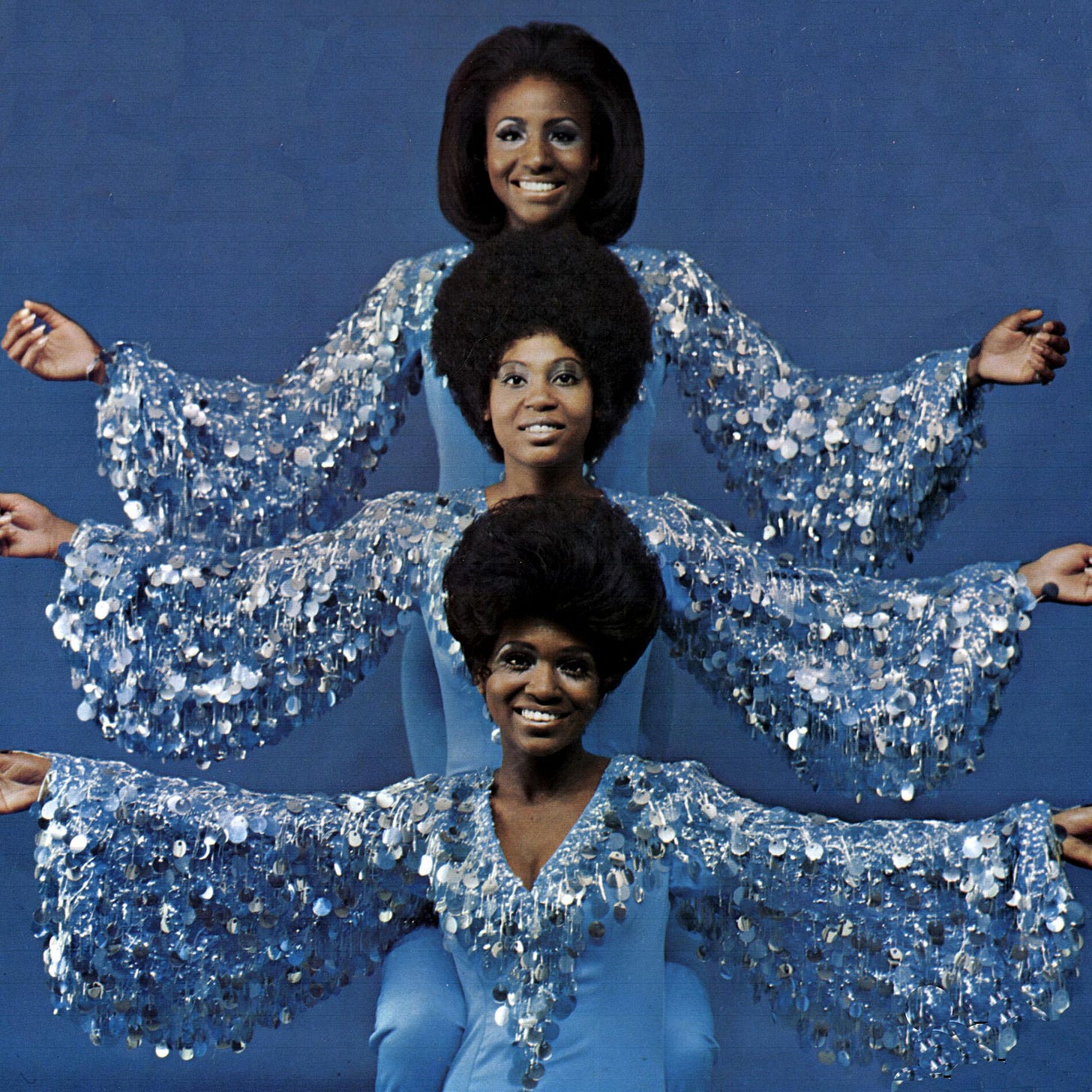
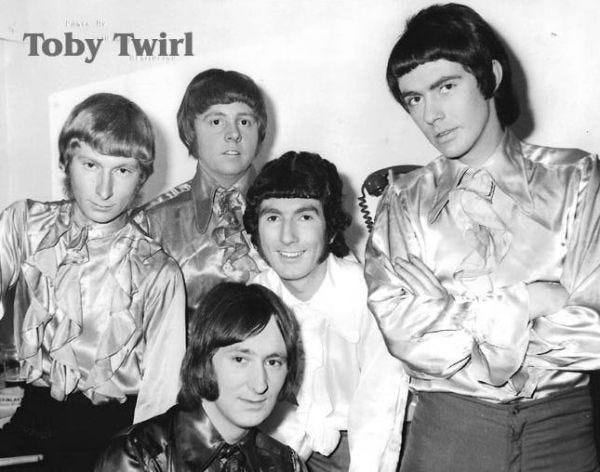


Really interesting, Brad, as usual. The radio video was cool -- took me right back to what it was like.
It's a really good song, and I have to think (as you allude) that it might have been a bigger hit in the first half of the decade when songs about young love and heartache were all the rage. The second half of the decade seemed to have a lot more focus on things happening in the culture or more grown-up relationship concerns (like love children). The girl groups for the most part seemed to have disappeared except the Supremes (am I wrong about that? just relying on memory) and the Supremes with Diana would not last much longer. But then they were writing in the UK, which I personally found living there has a very strong market for pop music and often make hits out of things that don't take off in the US. (They have Eurovision, a pop lollapalooza to end all pop lollapaloozas.)
I did find it interesting that they repurposed elements from an earlier song. The whole songwriting process is quite fascinating.
Such a great audio autopsy: fun, entertaining, thorough and, above all, educational! Thanks for including my comments, and it was very interesting to read what other writers had to say!
I love how you shed light on forgotten (in many cases, unknown, or unknown-to-most-readers) gems, and give them a new lease of life!
I particularly liked the mention of you in your mum's car in the late 60s. For younger readers like me, this is pure gold. Thank you!